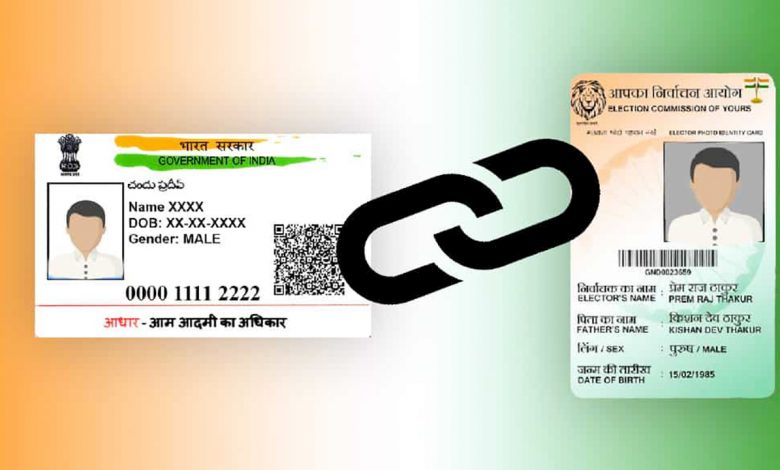Daily Current Affairs for UPSC
Aadhaar Linking in India
Syllabus- Government Policies & Interventions [GS Paper - 2]

Context- Over 60% of India’s 94.5 million voters, according to the Election Commission (EC), have linked their Aadhaar number to their voter IDs.
Key Highlights-
- The state of Tripura has the highest Aadhaar linking rate, with over 92% of voters providing the EC with their Aadhaar information.
- With over 91% and 86% of voters providing the number, Madhya Pradesh and Lakshadweep have the second and third highest rates of Aadhaar linking, respectively.
- Andhra Pradesh and Karnataka register less people than the national average for Aadhaar, registering less than 71%, while Tamil Nadu and Kerala register about 63% and 61%, respectively.
- With only 31.5 percent of voters linking the Aadhaar document to their voter registration, Gujarat has the lowest Aadhaar registration rate.
- Additionally, fewer than 34% of Delhi voters had their Aadhaar linked.
Why is the government insisting on linking Aadhaar and voter ID?
- Refresh the Database:
-
-
- The Election Commission, which regularly engages in activities to keep an accurate and up-to-date record of the voter base, would benefit from the linking project.
-
- Get Rid of Duplication:
-
-
- to get rid of people who vote twice, like migrant workers who might have been on the electoral rolls more than once in different constituencies or people who have been on the rolls more than once in the same constituency.
-
- ID for Voters in All of India:
-
- The government claims that linking Aadhaar to voter IDs will help ensure that each Indian citizen receives only one voter ID.
What problems arise when Aadhaar and voter ID are linked?
- Status Uncertain in the Constitution:
-
-
- One of the issues that the Supreme Court considered in the Puttaswamy case (Right to Privacy) was whether or not the requirement that Aadhaar be linked to bank accounts was in violation of the Constitution.
-
- Different Objective:
-
- Given that Aadhaar is only proof of residence and not citizenship, the preference for Aadhaar in determining voters is puzzling.
- As a result, verifying a voter’s identity against this will only aid in eliminating duplicate registrations but will not remove voters who are not Indian citizens from the electoral rolls.
Conclusion
- The government should anticipate passing the Digital Personal Data Protection (DPDP) Bill, 2022, in addition to pursuing the integration of Aadhaar and voter identification. The DPDP regime must also apply to government agencies, requiring them to get an individual’s explicit consent before sharing their data with other agencies.





.png)



